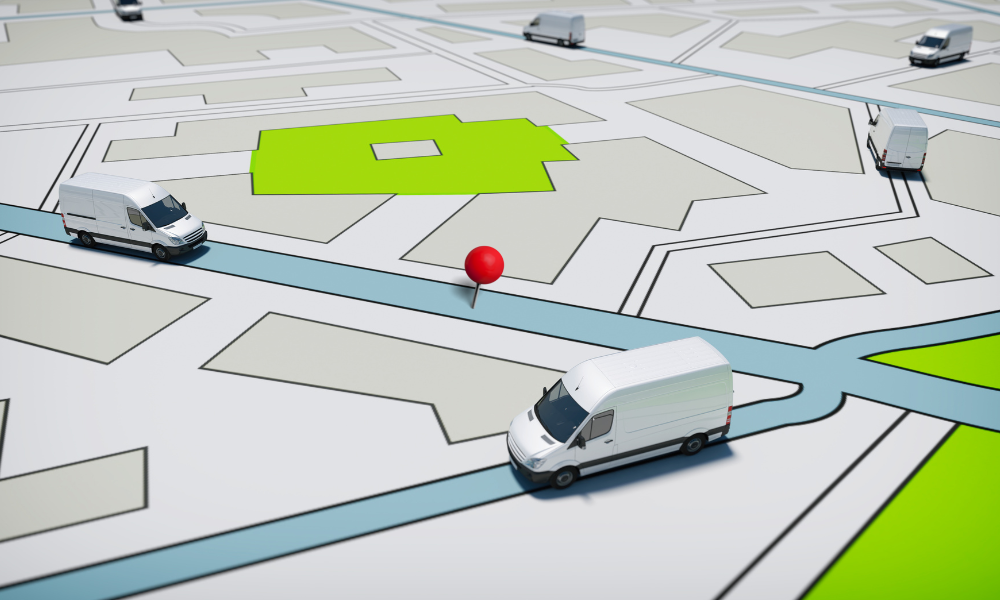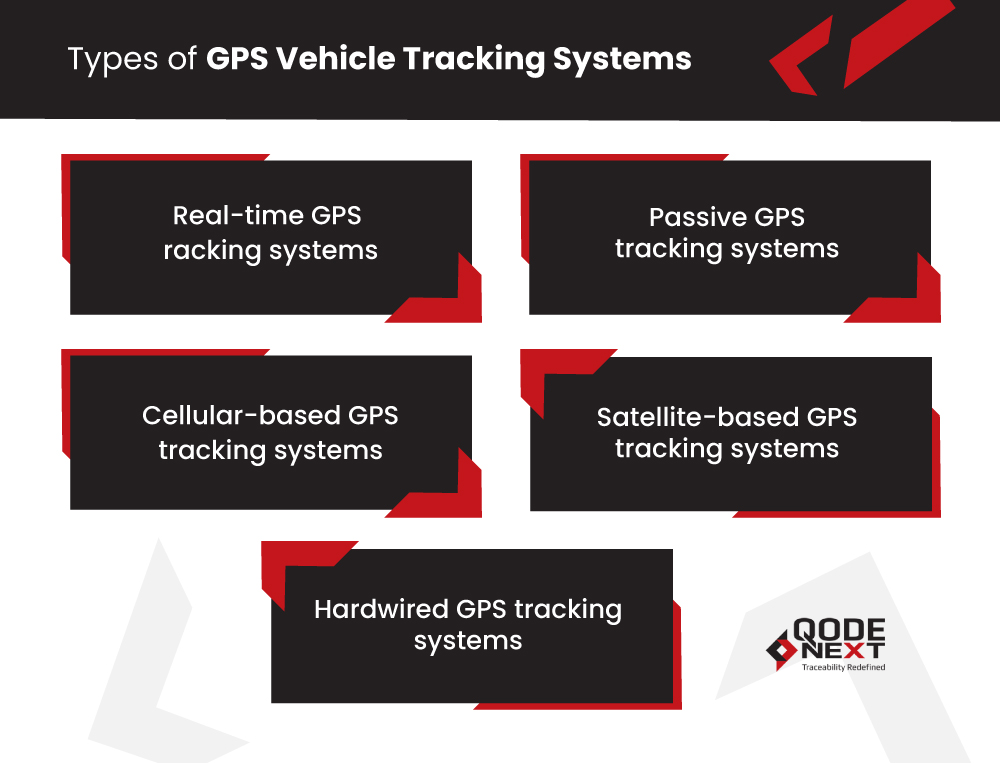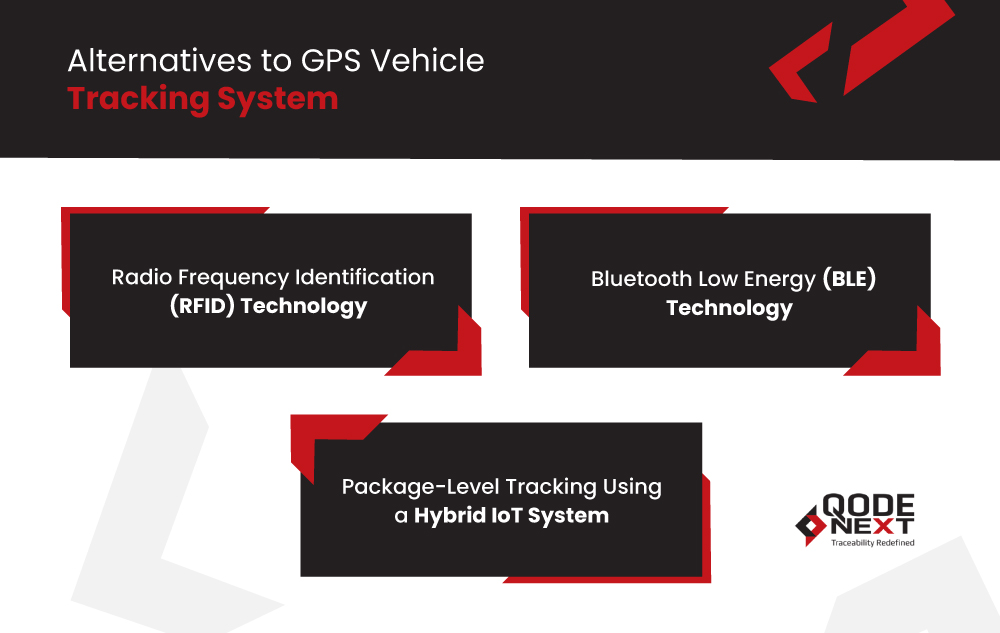Are you a manufacturing company looking for an alternative to GPS vehicle tracking systems? Do you want to keep track of your vehicles, drivers, and cargo without having to invest in expensive GPS-based solutions? If so, this blog post is for you! Here we’ll discuss the advantages and disadvantages of vehicle tracking system as well as explore some alternative solutions that may be better suited for your manufacturing company.
Keep reading to learn more!

GPS Vehicle Tracking System: What Is It?
Before we dive into exploring the alternatives of GPS vehicle tracking systems, it is important to know what a GPS vehicle tracking system is and how it operates.
GPS vehicle tracking systems utilize Global Positioning System (GPS) technology to accurately locate target vehicles along with several other attributes. In this system, GPS receivers are installed in the target vehicles. These receivers send signals to the GPS satellites, which determine the precise location of the vehicle.
It also assists fleet managers by enabling them to monitor key metrics pertaining to each vehicle’s location status, gauging fuel consumption demands, and keeping tabs on critical aspects linked with running optimal vehicular diagnostics protocols.
By utilizing this data, organizations have the ability to streamline their operations and effectively minimize expenses.

Types of GPS Vehicle Tracking Systems
There are many types of GPS vehicle tracking systems. Let’s discuss some of the important ones among them.
- Real-time GPS tracking systems: With these GPS vehicle tracking systems, you can track the location of your vehicle or fleet in real-time. Besides, it also provides you with constant updates on your vehicle’s movement.
- Passive GPS tracking systems: These GPS vehicle tracking systems don’t provide real-time updates on the vehicle’s movement and location. They store the data collected about the vehicle’s movement, which authorized users can download and view. This is a great system for storing and viewing the history of the vehicle’s movement.
- Cellular-based GPS tracking systems: These GPS vehicle tracking systems use cellular networks to determine the vehicle’s movement statistics.
- Satellite-based GPS tracking systems: Just like cellular-based GPS tracking systems, these systems use satellite networks to determine the vehicle’s location and movement.
- Hardwired GPS tracking systems: These tracking systems need to be installed in the electrical system of the vehicle. This system runs on the vehicle’s battery power.

There are many other types of GPS vehicle tracking systems in the market. However, the choice of your ideal GPS vehicle tracking system depends on your needs. Before going forward with getting a GPS vehicle tracking system, make sure to know advantages and disadvantages of tracking system in detail to analyze if it suits your needs.
Advantages of GPS Vehicle Tracking System
GPS vehicle tracking systems provide you with real-time updates about your fleet and assets. Besides these, they also have other advantages. Let’s explore the advantages of GPS tracking devices!
1. Live Location Tracking
With GPS vehicle tracking systems, you can monitor the real-time live location of your vehicles or fleet anywhere, anytime. This proves to be a boon for fleet managers as they can track their fleets’ movements and their driver’s course of action without any fuss.
Moreover, they can also optimize routes and reduce fuel consumption. Not just this, they can also prevent unauthorized vehicle use.
2. Better Security Features
GPS vehicle tracking systems come with a lot of other security features by which you can keep your fleet safe and secure all the time. For example, most GPS vehicle tracking systems have a security feature wherein the user can set to receive alerts whenever their vehicle is moving beyond the designated route or hours.
With this feature, the user gets alerts in case of suspicious activities, which can help them prevent theft and unauthorized access.
3. Geofencing
Geofencing is a feature in most GPS vehicle tracking systems using which users can create virtual boundaries around specific areas, also known as geofences. Whenever a vehicle enters or exits the area, the user will receive appropriate alerts stating the same.
Delivery businesses and companies can benefit a lot from this feature. It will help them monitor their fleet’s arrival and departure to and from a specific location.
4. Lowered Costs
GPS vehicle tracking systems provide a real-time location to managers using which they can optimize routes and cut down transportation costs. These tracking systems send routine alerts for vehicle maintenance which prevents heavy repairs and breakdowns.
Moreover, they simplify and automate fleet management operations, making them cost-effective.
5. Improved Customer Satisfaction
With GPS vehicle tracking systems, you can provide real-time order delivery status to your customers. Not just this, you can even inform them of the exact status of their order with an accurate estimated time of its arrival. This will help you reduce customer frustration thus improving your quality of service.
It also saves you time that would go behind coordinating with the drivers and the clients.
6. Theft Recovery
With GPS vehicle tracking systems, you can track your vehicle and assets in real-time. If you lose your assets accidentally or your vehicle gets stolen, you can easily track and recover them.
Disadvantages of GPS Vehicle Tracking System
Aren’t GPS vehicle tracking devices a life savior? Well, undoubtedly, they are! Despite the tons of security features and advantages, there are some disadvantages to these systems too! Let’s explore the disadvantages of GPS vehicle tracking systems.
1. Huge Power Consumption
The working of GPS vehicle tracking systems involves their continuous connection and data transmission with their GPS satellites. They rely on the vehicle’s battery for power.
Their continuous connection and data transmission will drain the vehicle’s battery life, which may be the main disadvantage of GPS for vehicles used for commercial purposes.
2. Location Inaccuracy
The GPS receivers are dependent on signals from at least four GPS satellites for accurate and precise location tracking. In case they receive signals from only three satellites, the results won’t be accurate.
Moreover, environmental factors such as heavy cloud cover, geomagnetic storms, and extreme weather conditions will also block GPS signals, thus leading to location inaccuracies. Similar problems may also arise due to the presence of skyscrapers, tall trees, and buildings in a particular area.
3. Incorrect Routes
When the number of GPS satellites are limited, the location tracking and vehicle positioning are somewhat inaccurate. Although satellites use atomic clocks, there are chances of errors and discrepancies. These minute factors may prompt incorrect routes to drivers, thus leading to a waste of fuel, money, and time.
4. Privacy Issues
Continuous use of GPS tracking strips the driver of their privacy, which is quite disturbing and contentious for them. Thus, GPS vehicle tracking systems also raise questions on data transparency and consent. The constant prompts from a system may prove to be irritating and nagging to the drivers.
5. Poor Signal Issues
GPS signals are weak in remote areas with poor network coverage. In such scenarios, the chances of signal loss and positioning errors are quite common. Drivers can’t always rely on these devices, especially if they have to travel through remote areas.
6. Hefty Price Tags
The cost of installing and maintaining GPS vehicle tracking systems is quite high, which may prove to be a heavy dent in small businesses’ pockets.
7. Long Learning Curve
GPS vehicle tracking systems come with a ton of functionality features. This may sound complex to fleet managers in the initial days. However, with some practice and assistance from the technical team, managers can benefit from its vast functionality in the long run.
8. Over-Reliance
Complete dependence on technology will render one complacent and lazy in case of technological malfunctions. When fleet managers heavily rely on GPS vehicle tracking systems, they become unaware of situational awareness. This is perilous in extreme situations such as during blackouts or network cuts or signal loss.
9. Distraction While Driving
GPS vehicle tracking systems require the driver to check their connected device continuously for updates and audio instructions. This is disturbing for drivers while driving and may lead to unfortunate events, especially in a busy high-speed environment.
Alternatives to GPS Vehicle Tracking System
Although there are many benefits of GPS vehicle tracking system, it has a lot of disadvantages as well. There are many better, more efficient, and more affordable vehicle tracking technologies that can be used as an alternative to GPS vehicle tracking systems.
1. Radio Frequency Identification (RFID) Technology
Radio Frequency Identification (RFID) Technology is a vehicle tracking technology that uses RFID tags identifiable by electromagnetic fields to track the vehicle’s location. In this system, a unique RFID tag is installed on each vehicle. These RFID tags contain electronically stored information which can be read by RFID readers installed at various checkpoints of the premises.
When the vehicle passes through any checkpoints, the reader collects all the information in the RFID tag and stores it in a central database. It’s an inexpensive and widely available technology and doesn’t require a clear line of sight. Thus, unlike GPS vehicle tracking systems, there are no chances of signal issues with this technology.
2. Bluetooth Low Energy (BLE) Technology
Bluetooth Low Energy (BLE) technology uses low-power radio waves to connect to vehicles and transmit data. It’s a wireless vehicle tracking technology in which a BLE beacon is installed in every vehicle with a BLE reader at every checkpoint.
The working is similar to that of RFID technology in which the BLE reader, installed at a checkpoint, reads the information stored in the BLE beacon as soon as the vehicle in which it’s installed passes through a checkpoint.
The best part about this technology is that it’s not power-hungry like GPS technology. Moreover, it’s affordable, easy to set up, and widely available.
3. Package-Level Tracking Using a Hybrid IoT System
In a hybrid IoT technology, various wireless technologies are used to track the vehicle. Thus, in this Technology, multiple technologies such as Bluetooth, GPS, and WiFi work in combination to provide more accurate and reliable real-time data.
In this system, multiple sensors are installed in the vehicle, with sensors at the checkpoint. The working is much similar to that of individual technologies, the only difference being the multiple numbers of technologies involved.
Although this technology provides more reliable data, it’s somewhat costly, and complex and demands the technical expertise of managers handling it.

TITO by QodeNEXT: The Best Vehicle Tracking Solution for Your Business
With lots of vehicle tracking solutions and technologies right before you, it must be daunting to decide which one is the best suited for you & your business. Well, stop worrying when you’ve TITO! TITO by QodeNEXT is the best vehicle tracking solution for your business. Wanna know why? Read on & explore!
QodeNext’s TITO is a comprehensive truck management solution designed to optimize vehicle tracking and scheduling across facilities. TITO is the best of all these alternatives for a GPS vehicle tracking system. Using RFID, BLE, and IoT technologies, TITO lets you enjoy improved truck turnaround time with up to 30% better efficiency, eliminates pilferages with automated weight capture processes, and enhances trust with biometric systems.
Live dashboards and maps provide increased visibility, while fully automated IOT devices offer advanced situational awareness. Enjoy easy integration with most standard ERP and WMS systems, reduced manpower monitoring processes, and improved driver awareness.
TITO is the ideal solution to optimize vehicle management, improve visibility and increase operational efficiency. Make the most of your business today with TITO by QodeNEXT!
FAQ: Advantages and Disadvantages of Vehicle Tracking System
1. What is a GPS vehicle tracking system?
GPS vehicle tracking systems utilize Global Positioning System (GPS) technology to locate target vehicles and several other attributes accurately.
2. How does vehicle tracking system work?
In GPS vehicle tracking systems, GPS receivers are installed in the target vehicles. These receivers send signals to the GPS satellites, which, in turn, determine the precise location of the vehicle.
3. What are some disadvantages of GPS vehicle tracking systems?
The disadvantages of GPS vehicle tracking systems include:
- High power consumption,
- Location inaccuracy,
- Incorrect routes,
- Poor signal quality,
- High cost,
- Has a long learning curve,
- Causes over-reliance on technology, and
- Causes distraction while driving.
4. What are some alternatives to GPS vehicle tracking systems?
The alternatives to GPS vehicle tracking systems include other vehicle tracking technologies such as Radio Frequency Identification (RFID), Bluetooth Low Energy (BLE), hybrid IoT, etc.
5. How TITO by QodeNEXT is the best vehicle tracking solution for your business?
TITO by Qodenext provides enhanced visibility and control of truck movements, leading to improved functionality and reduced operational costs. It also helps you automate the check-in process to minimize bottlenecks, optimize the movement of trucks, reduce rental costs due to improved truck turnaround time, and decrease pilferage at the weighbridge.
Conclusion
GPS vehicle tracking systems offer many advantages, including improved safety and security, accurate data collection, increased efficiency, and cost savings. However, they also have some disadvantages, such as privacy concerns, potential hacking vulnerabilities, and a lack of reliability.
Many alternatives to GPS vehicle tracking systems, such as RFID, BLE, and hybrid vehicle tracking systems, have come up. With our product TITO, which incorporates the best features of all these alternatives, you will experience enhanced visibility, accuracy, and cost savings to no bounds. TITO will help you manage and control vehicle movement across all your facilities.
Now that you know of the advantages and disavantages of vehicle tracking system, get in touch with us to help us helpy you make the best choice to manage your fleet!


